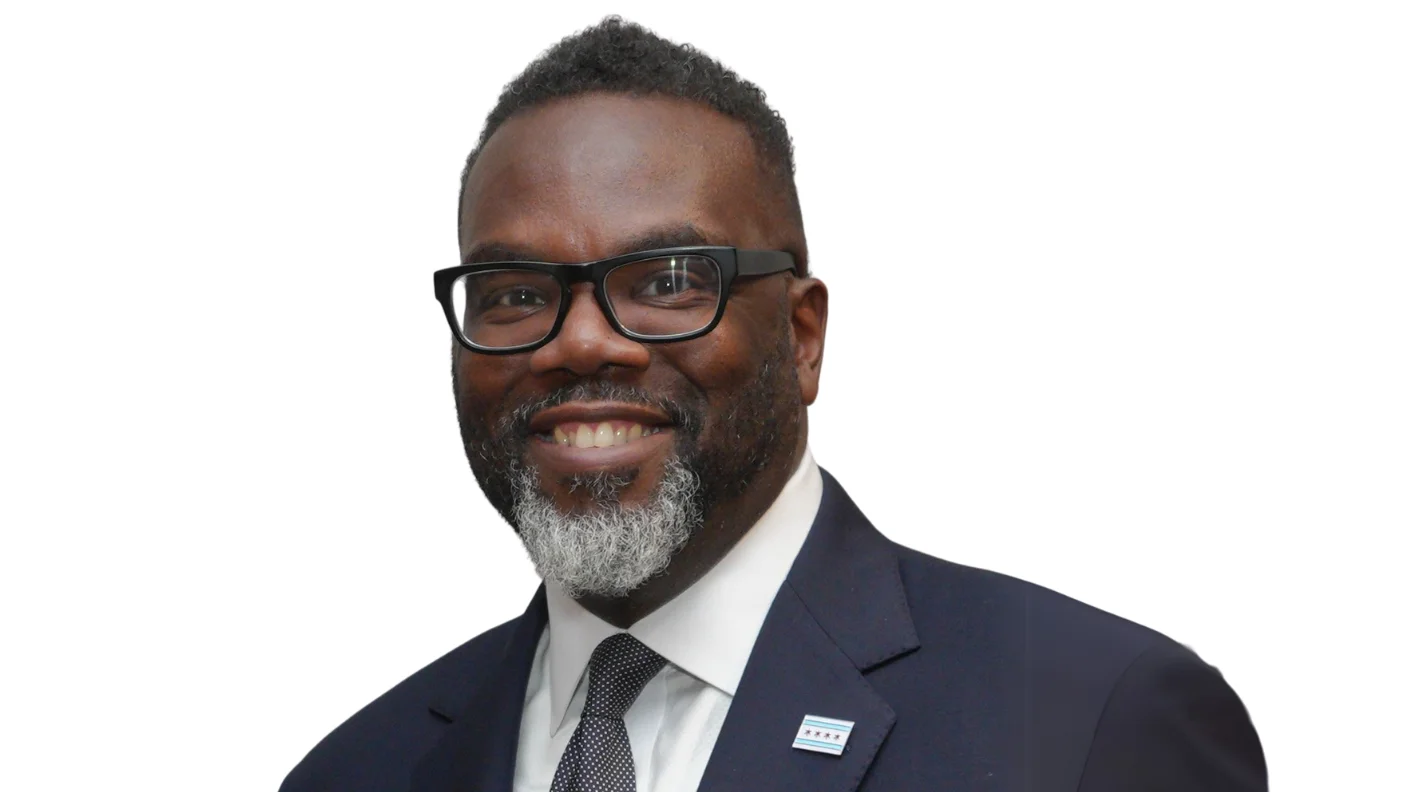Brandon Johnson Mayor | Chicago Contrarian
Brandon Johnson Mayor | Chicago Contrarian
The White House has several options to help address crime in Chicago, with one proposed measure being the implementation of a Federal Public Safety Consent Decree.
President Donald Trump recently invoked section 740 of Washington, D.C.’s Home Rule Act to assert federal control over public safety in the federal district and warned of possibly deploying the National Guard to cities like Chicago and Baltimore. However, critics say this approach is more political than practical. Legal experts note that while the Home Rule Act allows a president temporary control over D.C.'s police during emergencies, extending such powers to other major cities would likely face legal and political challenges.
“Trump has targeted D.C. because, as a federal enclave with limited protections against presidential overreach, it is easier to target. Legally, the Home Rule Act does allow a president to assume temporary control of D.C.'s Metropolitan Police for up to 30 days during declared emergencies. However, his legal footing is significantly weaker in other major cities, and any attempt to impose sustained federal intervention would face formidable judicial and political challenges.”
Despite claims that violent crime is declining in places like D.C., many large American cities still struggle with high rates of violence. Chicago remains among the top cities for murders, shootings involving school-age youth, and mass shootings.
“While critics claim that Trump’s intervention does not align with reality as murders and shootings have been declining in D.C. and across the country, the fact remains the District of Columbia and many other American cities remain very dangerous places. Chicago continues as the nation’s leader in the number of murders, shootings, school age youth shot, and mass shootings. If Chicago were a state, it would have been second only to California in mass shootings.”
Mayor Brandon Johnson has pointed out recent drops in crime rates as evidence for his administration’s progressive policies; however, some analysts argue that these declines are part of an expected return after pandemic-era spikes.
“Though Mayor Brandon Johnson has seized on drops in crime to bang the drum for his progressive policies, the decline in violent crime was to be expected after the pandemic-era surge that saw the closing of schools for almost a year and a half.”
Data show out-of-school youth contributed significantly to increased violence during COVID-19 disruptions. For example, murder rates among this group rose by 50 percent during school closures.
Other factors behind falling crime rates include partial rollbacks of “anti-police” reforms enacted after protests following George Floyd’s death. Changes within city leadership—such as Larry Snelling becoming Superintendent and Judge Eileen O’Neill Burke being elected Cook County State’s Attorney—have also influenced law enforcement approaches.
“Other factors contributed to drops in crime in Chicago. Many so-called ‘anti-police’ reforms enacted after the George Floyd protests have been partially rolled back, restoring some police effectiveness. Chicago’s leadership has changed as well, with Larry Snelling appointed Superintendent and Judge Eileen O’Neill Burke elected Cook County State’s Attorney. Both Snelling’s appointment and Burke’s election signaled a return to more proactive policing and a reduction in pre-trial release.”
Burke's term began at the end of 2024; since then arrest rates have rebounded alongside jail populations.
“It should be noted that while murders and shootings have declined substantially, the major crimes in cities like Chicago remain up overall since pre-COVID fueled by carjackings, burglaries and robberies. Meanwhile, with police strength 1,700 below pre-COVID levels, only half the ‘high priority 911 calls have police cars available to dispatch when the calls come in. That lack of responsiveness suggests that many crimes are being underreported. Prior to COVID it was 19 percent.”
The article proposes three main steps President Trump could take if he aims to support local efforts:
1) Coordinated Federal Support: Federal agencies can assist local law enforcement by bringing charges against individuals involved in aggravated assault or illegal gun possession by felons.
2) Restore Law Enforcement Grant Funding: Restoring Department of Justice grants could strengthen community policing programs.
3) Systemwide Federal Public Safety Consent Decrees: The Department of Justice could implement consent decrees focusing on victim protection rather than adding oversight layers for police departments alone.
A specific call is made for applying such a decree across all elements of Cook County's justice system—not just its police department—to ensure comprehensive oversight under an independent monitor.
“A Case for a Cook County Consent Decree
Public safety is a human right constituting the government's primary responsibility to its citizens. In Cook County however...”
Concerns are raised about current practices where most violent offenders are not apprehended or charged due partly to reduced police staffing levels; there are also criticisms regarding pretrial releases following Illinois' abolition of cash bail.
Since September 2023 when Illinois ended cash bail requirements statewide (https://www.npr.org/2023/09/18/1199830400/illinois-cash-bail-eliminated-pretrial-fairness-act), more than 67,000 released defendants failed court appearances but instead received mailed notifications rather than facing arrest warrants or detainment measures.
Critics say previous leadership under Kim Foxx focused too much on defending accused offenders rather than victims through units like her Conviction Integrity Unit which sought reversals based on alleged misconduct—even without strong evidence supporting innocence claims—and issued Certificates of Innocence leading taxpayers toward significant settlement costs from wrongful conviction lawsuits (https://www.chicagotribune.com/news/criminal-justice/ct-chicago-wrongful-convictions-lawsuits-payouts-20231211-g2wnp6xjpvclblzqiwxyyz64me-story.html).
“The financial toll to Chicago is staggering: Since 2008...taxpayers have paid over $1.1 billion...including $384 million from 2019–2023.... Currently pending wrongful conviction lawsuits threaten billions more.... Politically connected law firms routinely profit...rarely challenging claims before moving on...”
Meanwhile existing consent decrees focus primarily on police conduct rather than effectiveness or outcomes according Charles Fain Lehman at Manhattan Institute (https://manhattan-institute.org/policing-consent-decrees). Critics argue these arrangements create lucrative opportunities for consultants but do little long-term good for public safety or trust.
In conclusion advocates suggest expanding oversight beyond just policing into every component involved—from prosecutors’ offices through courts—with independent monitoring backed federally if meaningful improvements are expected across all sectors impacting public safety.






 Alerts Sign-up
Alerts Sign-up